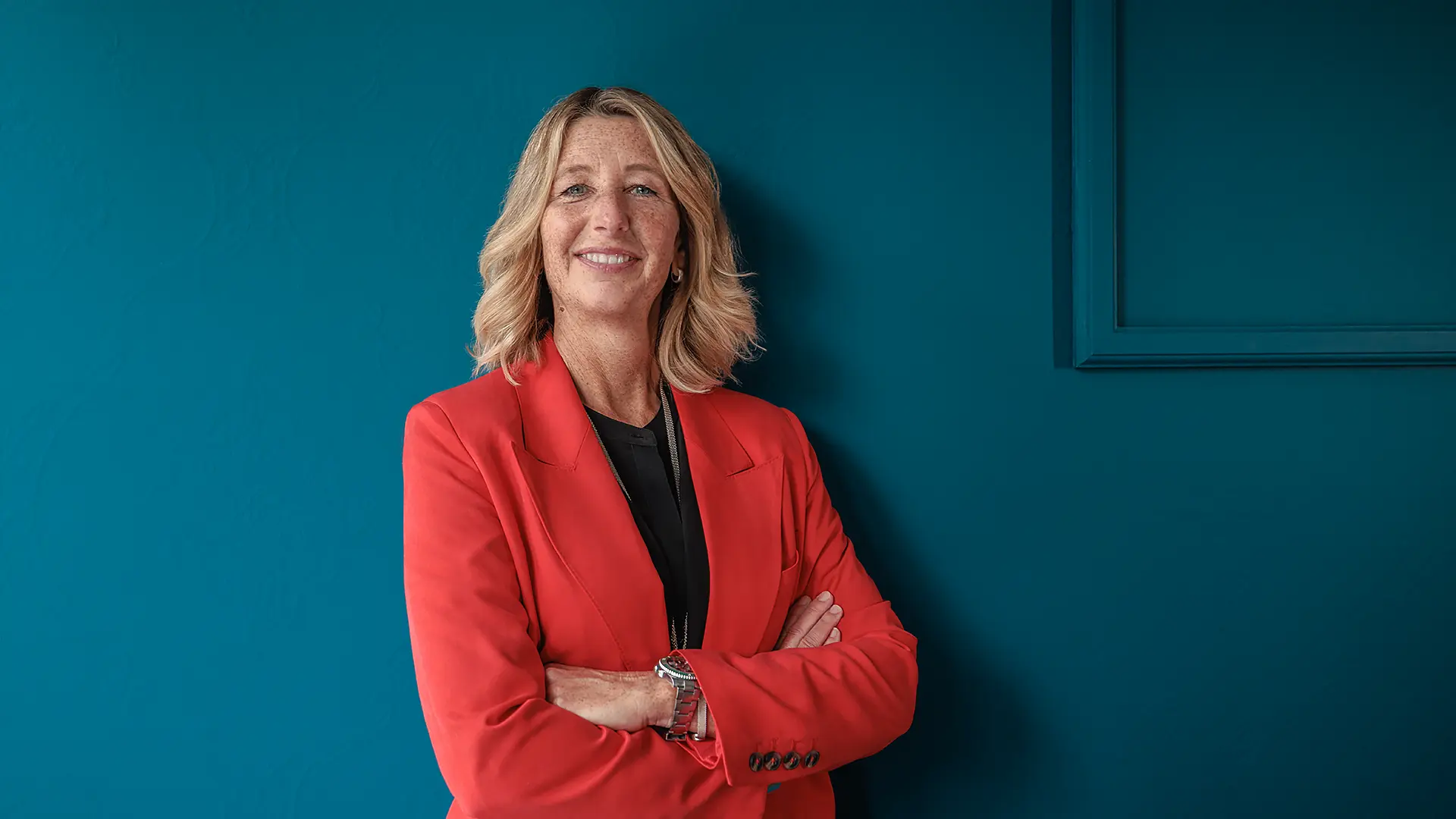Leading in the Digital Age: The Importance of Trust

Trust plays a critical role in our professional lives, whether it’s the trust we share in our teams, with our colleagues, our customers, or our suppliers. I am certain that successfully leading in the digital age requires having and creating trust.
In my experience, trust is the glue that binds leaders to their teams and paves the way to success in a very fast-moving, innovative environment. That’s why this article is about the topic trust. I want to share my personal views on how the ties created by trust can help us lead successfully.
Leading in the Digital Age
Digitalization is constantly forcing us to rethink the way we do business and lead. The transformational change triggered by rapidly evolving technologies and new business models challenge us as leaders and constantly tests our leadership capabilities. The way we work, for example, has changed significantly; technology allows us to work virtually where, how, and when we want. Furthermore, for many people, data and information can be accessed with just a few words typed into a search engine and the click of a mouse.
How could this work without trust? We have no other choice but to adapt.
The classic understanding of what makes a great leader has naturally evolved. Functional expertise, quick decision making, and the right personality traits are no longer enough to navigate through the complexity of today’s business environment. Our emotional intelligence, empathy, and ability to manage personal relationships matter more than ever. We must become more trusting, agile, flexible, collaborative, and creative to thrive in the digital age. All these capabilities heavily rely on connecting and engaging with people effectively.
Enjoying trust but also exercising trust is crucial in any business. Specifically, in times of uncertainty and transformational change, trust becomes a prerequisite for collaboration, an enabler to mobilize teams behind a change, an impulse to innovate, or an incentive to drive a higher team performance. Companies that promote a high trust environment are more likely to attract, retain, and grow new talents. As leaders, we need to build and cultivate trust.
The Essence of Trust
We tend to think that when leaders speak and act their words and actions matter. But this power to influence extends far beyond leaders. Every employee should trust that if they speak and act, they will be respected, their opinion valued and suggestions welcomed. This is the essence of trust and is, ultimately, the essential bridging element that creates an emotional tie between leaders and their followers, and between colleagues.
In creating such an environment, leaders are able to cultivate an atmosphere where every employee can inspire others and where communication is honest and respectful. However, trust comes with responsibility, a responsibility each individual needs to own up to. It takes discipline, focus and integrity to live up to it.
My Learnings on the Path to Trust-Based Leadership
Putting trust at the core of a leadership agenda requires a sustained and consistent effort over time. Looking back on my 20 years in the logistics industry, there are a few learnings that have proved vital for me in building a trust-based workplace at DHL:
1. Promoting Core Values and Creating a Trust Culture
It all starts with mutual respect and honesty. I always encourage fairness, transparency, and information sharing within my teams. They know they are allowed to make mistakes but they need to take responsibility for their mistakes and seek constant feedback. I value environments where people dare to speak up, innovate, and take risks. I personally worked for many different managers in the past. Some loved to micromanage and own all decisions, others gave me the freedom to decide, make mistakes, and ask questions.
The difference was immense for me; I knew I needed to be trusted and empowered to perform better. It helped me to challenge the status quo, experiment with new ideas. In short, it motivated me to go the extra mile. As a leader today, I like to encourage my employees to do the same and see mistakes as an opportunity to learn, make a difference, and grow.
2. Valuing Others’ Expertise
I make it a priority to acknowledge the abilities of my people. When new consultants join our team, they immediately get hands-on with project work. In doing so, we show them that we hired them because we believe they will be a valuable asset to the team who has the skills to do a great job. This, however, is a fine balancing act, for new consultants who may not have extensive experience it can be very daunting.
That’s where our core values and environment play a role. By promoting an environment where there is no such thing as a stupid question, everybody feels empowered to learn, and having a buddy system, where from day one everyone knows there is someone they can go to for support is incredibly valuable. I also find it very helpful to speak openly with new joiners and explain this all to them in an expectation talk.
3. Patience
I have learned that building and maintaining a culture of trust is a long-term investment with no instant gratification. It requires sustained efforts, consistency in your actions, and patience with yourself, your people and your customers. Promoting trust has become my personal agenda.
The Personal Touch
Trust is an admirable and essential leadership instrument we must all learn to play and perfect. It goes beyond our business track records as leaders.
The trust we build is a reflection of the courage, the commitment, the respect, and the curiosity we display when engaging with others – no matter if they are employees, partners, or clients. It is our responsibility to set the example for trustfulness and trustworthiness through sincere words and consistent actions.
For me, trust is the force behind an effective, high-performing, and harmonious team. As the change agent driving the DHL Consulting digital agenda, I know too well the power of trust in engaging and mobilizing our teams behind our vision. It is the trust my management team and I place in our teams every day that allows us to excel at this task together. It also takes more than trust in isolated leaders to move the needle. Trust must be felt and granted within the entire company.
Finally, gaining trust does not happen overnight. It takes time and consistent investment for it to grow and produce the expected results. The journey to trustworthy leadership is not without roadblocks. However, a culture of integrity and mutual respect will go a long way in overcoming any setbacks.
Do you think you can be trusted as a leader and can you possibly place the same trust in your organization? Read more on the topic in my related blog article. I look forward to starting the conversation with you on my LinkedIn or Twitter.






